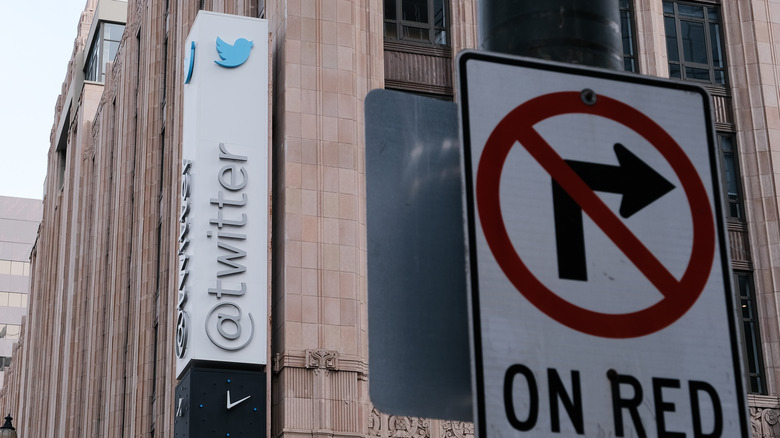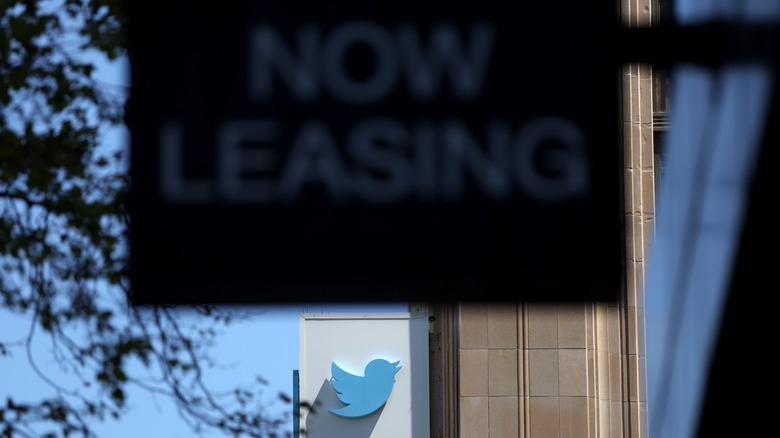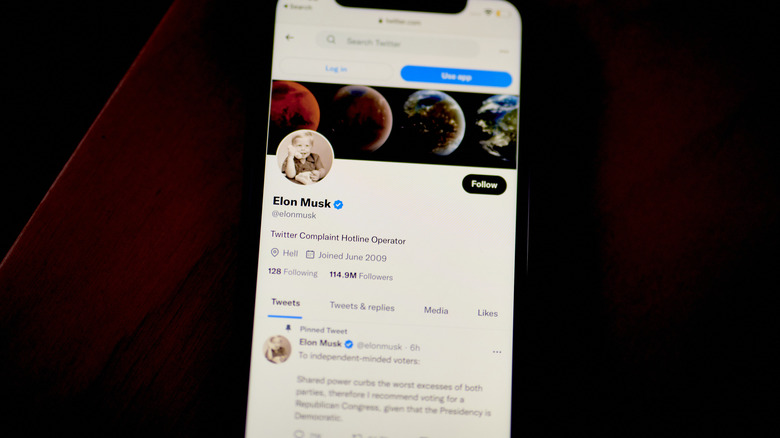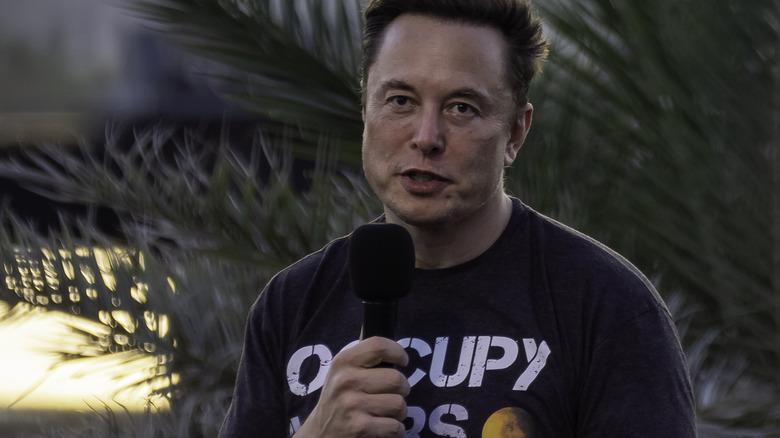

Musk Has Clarified His Remote Work Policy, But It Still Sounds Terrible
source link: https://www.slashgear.com/1108319/musk-has-clarified-his-remote-work-policy-but-it-still-sounds-terrible/
Go to the source link to view the article. You can view the picture content, updated content and better typesetting reading experience. If the link is broken, please click the button below to view the snapshot at that time.

Musk Has Clarified His Remote Work Policy, But It Still Sounds Terrible

As we've been reporting, Elon Musk and Twitter have been getting along like a house on fire. Regrettably, that's not an idiom – People have fled the burning building, the structure is starting to collapse, and the owner appears to be salting the ashes.
How did it come to this? How did the largest purchase ever made by the world's richest man degenerate into a media punchline? After all, by some measures, Twitter is thriving. The platform has repeatedly hit active-user highs in the last few weeks.
People seem to want what Elon Musk is selling. Why is he having so much trouble giving it to them?
Right now, Twitter may be suffering because of one of Elon Musk's simplest demands. Curiously for a man who sees himself as a futurist, Musk insists on a very conventional in-office 40-hour week. He sent an email to that effect on November 16th. Consequences ensued. Why?
Two steps forward, three steps back

In Elon Musk's own words, his reactionary approach to Twitter's workforce is about making it "hardcore." Musk wants a company staffed solely by passionate experts, people who consider an in-office, 40-hour week the bare minimum of commitment.
The math is against him, however. Pew Research confirms basic business sense: people who can work from home generally prefer to do so, even if the pandemic was not a factor. Pew doesn't have a research category for "passionate expert," but people with college degrees and high income are even more likely to choose to work from home.
Musk sent managers some damage control on November 17th, but it didn't reverse his position. In some ways it got stricter, instructing supervisors to meet weekly with the few employees granted work-from-home privileges and threatening summary dismissal for managers who allowed employees who weren't "exceptional" to work from home. Reporter Davey Alba has the email:
New @TheTerminal – Musk has softened his work from home policy at Twitter. Email today: "Regarding remote work, all that is required for approval is that your manager takes responsibility for ensuring that you are making an excellent contribution." 1/
— Davey Alba (@daveyalba) November 17, 2022
Falling bird

What followed was, a former Twitter executive told CNN, "mass exodus." CNN and the BBC both describe cascades of "salute" emoji in internal Slack channels — farewells from Twitter employees who stayed long enough to get the Thursday email, then tapped out. Many apparently agreed with a former Twitter employee speaking to the BBC: "I didn't want to work for someone who threatened us over email multiple times about only 'exceptional tweeps should work here' when I was already working 60-70 hours weekly."
Now, Twitter may have less than 2,000 employees left. Before Musk, it had around 7,500. Musk has locked employees out of Twitter HQ until next week — apparently, per Zoe Schiffer of Platformer, for fear of theft or sabotage.
NEW: Twitter just alerted employees that effective immediately, all office buildings are temporarily closed and badge access is suspended. No details given as to why.
— Zoë Schiffer (@ZoeSchiffer) November 17, 2022
That's unconfirmed as yet, mostly because, as Axios notes, Twitter no longer has a communications department. At this point, we frankly don't blame Musk for not wanting to be CEO of anything anymore.
All The Ways Twitter Has Already Changed Under Elon Musk

Elon Musk is now the master of Twitter, a platform that he sees as the de facto public town square, and which he aims to turn into a free-speech utopia. However, Musk's takeover has been met with a rather vocal, but divisive, reaction. For folks that see him as a visionary, they are already predicting a revival of Twitter's fortunes, both as a product and a business. The likes of Mark Cuban, at least, think that way.
Others say Musk will drive the platform to the ground because of his inexperience running a company that is more politically sensitive and administratively entangled than any business he has run before. Then there's the concern about Musk's impact on steering the discourse on Twitter in the immediate future.
Whether he maintains its neutrality while bolstering free speech remains to be seen. How will he manage the conflict of interests while also serving as the chief of Tesla, when rival carmakers already advertise on Twitter? Will Twitter see an exodus of influential people under Musk's lordship? A lot has happened in the past few weeks.
Start the job with house cleaning
It is not a strange phenomenon to see a new owner cleaning the board and other C-suite executives after acquiring a company. Musk proved no different. Soon after news broke that Musk has finally signed the papers and has officially become the "chief twit," it was revealed that Musk had fired CEO Parag Agrawal, who took over the helm from co-founder and former CEO Jack Dorsey.
Musk had no special fondness for Agrawal and even challenged him to a debate publicly on Twitter over the platform's real user engagement and bot figures. Musk also laid off Twitter's top policy and legal executive Vijaya Gadde. Gadde is said to have been the architect behind suspending Donald Trump's account, a decision that Musk classified as "flat-out stupid."
Chief Financial Officer Ned Segal was also fired, alongside General Counsel at Twitter, Sean Edgett. There are also reports floating around that Musk is reshuffling the core engineering team at Twitter, and has also brought in Tesla's engineering team for an analysis.
Twitter waves goodbye to the stock exchange
One of the earliest grievances that Musk had with Twitter was the inability to take hard decisions, and that's because it has a public company where investors' will reigned supreme. Even Jack Dorsey reportedly confided as much in Musk, and the latter expressed publicly that Twitter needs to be taken private to take the heavy-hitting decisions that could inject fresh energy into the platform.
Well, now that Musk has paid his $44 billion with help from banks and a few very rich friends, the billionaire is taking Twitter private. Twitter has already filed Form 25 before the US SEC, an agency that Musk is not really fond of. The SEC, in turn, has directed the New York Stock Exchange to delist TWTR from its registry when trading begins on the morning of November 8, 2022.
Now, Musk will no longer have to release quarterly earnings reports publicly and field questions from investors. Twitter is effectively a closed book from a financial transparency perspective, and the only parties that will be privy to any such information will be supporting bank entities like Morgan Stanley, which need their fat interest in return for staking $13 billion in debt towards the purchase.
No plans of unbanning hellraisers
Musk isn't a fan of permanent bans, and has expressed his displeasure in the past over the suspension of Donald Trump's account. With Twitter now under his sole ownership, there was strong speculation that he would bring back the de-platformed personalities like Trump and Alex Jones. That won't happen any time soon, it seems.
Musk says he will soon form a "content moderation council with widely diverse viewpoints" that will take a look at all moderation and policy enforcement-related affairs. He tweeted that no decisions related to reinstating a banned account will be taken before a meeting of this council, adding that so far there are no changes from the existing Twitter policies.
To be super clear, we have not yet made any changes to Twitter’s content moderation policies https://t.co/k4guTsXOIu
— Elon Musk (@elonmusk) October 29, 2022
Details are thin on whether this council will consist of independent experts — the way Meta's Oversight Board operates — or if it only accepts in-house legal and policy experts from within the ranks of Twitter employees. Either way, the stakes are high, especially with Musk sitting at the top and his shifting geopolitical inclinations from time to time.
A surge in right-wing influence
"The reason I acquired Twitter is because it is important to the future of civilisation to have a common digital town square, where a wide range of beliefs can be debated in a healthy manner," Musk recently said of the deal. However, the news of his takeover has found a celebratory tone in the right wing circle, and dejection from those on the left side of the political ideology. There are numbers that suggest such a reality.
According to an analysis, accounts of popular far-right figures such as Lauren Boebert and Kari Lake have seen their follower growth shoot up by as much as 1,200% in the past 24 hours. The accounts in question are well-known for spreading hateful discourse and disinformation, which is an alarming trend.
The spike in popularity of these popular far-right accounts can not be conclusively linked to Musk's takeover of the platform. However, the sudden spurt in popularity due to fresh Twitter accounts aligns with the window when the final formalities that handed over total control of Twitter in the hands of Elon Musk, concluded.
Tesla rivals are on the fence
Elon Musk is now the simultaneous owner of Twitter — a plum place for advertising — and Tesla, the world's largest electric car brand. So, it was always a natural question for Tesla rivals to do a double-take about advertising on a platform owned by Musk. The concerns about accessing a neutral online platform are legitimate. What if Musk algorithmically suppresses their ads? What if Tesla ads on Twitter get an unfair advantage?
Earlier today, French carmaker Citroen shared a cheeky tweet that said "Hello to the social media platform owned by one of our competitors." The tweet set the tone for a serious debate that eventually snowballed into a realistic business and landed at the doorsteps of General Motors.
GM has now put a hold on advertising its goods and services on Twitter. The company will continue to rely on Twitter for resolving customer queries, but it won't be paying for ads on the platform for an undisclosed duration. It would be interesting to see if automakers decide to altogether shun their brand presence on Twitter, especially the likes of Ford and Stellantis that are increasingly competing against Tesla in the EV game.
Exodus of influential personalities
Ever since Musk first declared that he had purchased a majority stake in Twitter, which eventually transformed into full-house ownership, numerous influential personalities have expressed intent of waving goodbye to Twitter, fearing where the platform was headed under Musk's leadership.
Ken Olin, executive producer of NBC drama "This Is Us" announced his exit from Twitter with a tweet that said "I'm out of here. No judgement," further adding that "Let's protect our democracy." According to The Hollywood Reporter, Alex Winter of the "Bill & Ted" movie fame and co-writer of "Ocean's Thirteen," Brian Koppelman, have also bid adieu to the platform.
Wrestling News reports that WWE legend Mick foley has deleted his Twitter account. Other celebrities that have threatened to leave Twitter in the past include "The Good Place" star Jameela Jamil, "The Watcher" star Mia Farrow, Black Lives Matter activist Shaun King, and author Amy Siskind. Others like "Star Trek" legend George Takei have expressed that they will hang on to the platform and will try to balance out the negativity.
Recommend
About Joyk
Aggregate valuable and interesting links.
Joyk means Joy of geeK